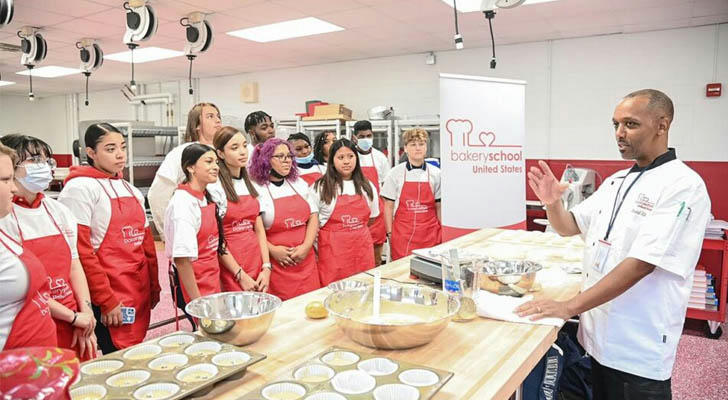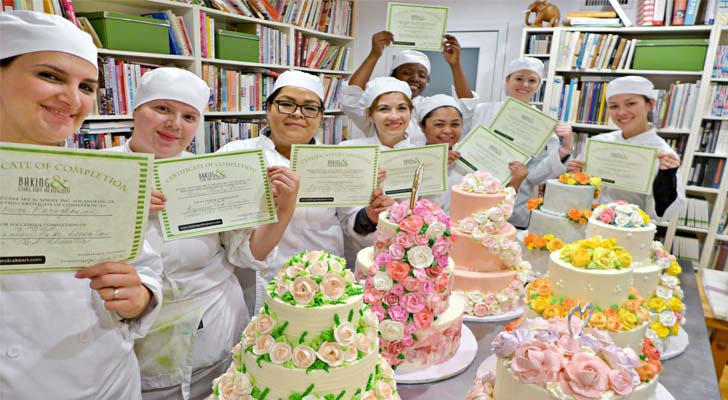Starting from Scratch: Beginner Baking Training Courses
Baking is a blend of creativity, science, and skill. While some people are naturally gifted at making pastries and bread, most successful bakers start with structured training. A beginner baking course provides the foundation necessary to understand techniques, ingredients, and the chemistry behind baking. Whether someone wants to bake as a hobby or pursue a professional career, a well-designed course can make the journey much smoother.

1. Why Take a Beginner Baking Course?
Many people love the idea of baking but feel intimidated by complex recipes and techniques. A structured course helps students build confidence by breaking down baking into simple, manageable steps. These courses offer:
Hands-on Learning – Practical experience to help develop muscle memory for essential techniques.
Expert Guidance – Professional bakers share industry secrets, helping students avoid common mistakes.
Structured Learning Path – Lessons progress from simple to advanced, ensuring a solid foundation.
Ingredient and Equipment Knowledge – Understanding how ingredients interact and how to use the right tools.
Baking requires patience and practice, but with the right guidance, even a complete beginner can master the basics and move on to more advanced skills.
2. What Do Beginner Baking Courses Teach?
Most beginner courses focus on core skills that form the backbone of baking. These include:
Understanding Ingredients
• The role of flour, sugar, butter, eggs, and leavening agents in baking.
• How different types of flour affect texture and consistency.
• Substituting ingredients for dietary needs (gluten-free, dairy-free, vegan options).
Mixing and Kneading Techniques
• The importance of measuring ingredients accurately.
• Proper techniques for mixing batter and kneading dough.
• How to achieve the perfect dough consistency for bread and pastries.
Temperature and Baking Methods
• Understanding oven settings and how they impact baking.
• Common baking mistakes and how to fix them (e.g., underbaking, overmixing, collapsed cakes).
• Using proofing techniques for bread and pastries.
Basic Recipes Taught in Most Courses
• Classic Bread – Learning yeast activation, proofing, and baking techniques.
• Cookies and Biscuits – Mastering dough consistency and baking time control.
• Cakes and Cupcakes – Understanding batter aeration, baking, and simple decorating methods.
• Pastries and Tarts – Introduction to laminated dough, crust techniques, and fillings.
3. Types of Beginner Baking Courses
In-Person Classes
Many culinary schools, bakeries, and community centers offer hands-on baking classes. These are ideal for those who prefer face-to-face learning and immediate instructor feedback. In-person courses also provide access to professional equipment and ingredients.
Online Baking Courses
For those with busy schedules, online classes offer flexibility. These courses often include:
• Video tutorials with step-by-step demonstrations.
• Downloadable recipes and ingredient guides.
• Interactive forums for students to ask questions.
• Self-paced learning with lifetime access to materials.
• Online courses are a great option for learners who want to practice at their own pace without pressure.
Workshops and Short Programs
Weekend workshops or short-term training programs focus on specific skills, such as cake decorating, sourdough bread-making, or chocolate-based desserts. These are perfect for those who want to specialize in a certain type of baking without committing to a long-term course.
4. Career Opportunities in Baking
Many students take baking courses as a hobby, but others pursue professional paths in the food industry. Some career opportunities include:
• Pastry Chef – Working in restaurants, hotels, or bakeries.
• Cake Decorator – Specializing in wedding cakes, birthday cakes, and artistic designs.
• Bakery Owner – Opening a home-based or commercial bakery.
• Catering Business – Providing baked goods for events and celebrations.
• Food Blogger or Content Creator – Sharing baking knowledge through videos and social media.
The baking industry offers stable career options with competitive salaries. In the U.S., professional pastry chefs earn between $35,000 and $55,000 per year, with experienced bakers making over $75,000 annually. Those who start their own businesses have even higher earning potential.

5. Choosing the Right Baking Course
With so many training options available, selecting the right course can feel overwhelming. Here are some key factors to consider:
• Curriculum Quality – Does the course cover fundamental baking techniques?
• Instructor Credentials – Are the instructors experienced professional bakers or pastry chefs?
• Course Format – Does it offer hands-on practice, video tutorials, or instructor feedback?
• Time Commitment – Does the course fit into your schedule?
• Cost and Materials – Some courses provide ingredients and tools, while others require students to buy their own.
6. Investing in Baking as a Lifelong Skill
Baking is not only a practical skill but also a rewarding creative outlet. Whether someone wants to bake for fun, impress friends and family, or build a career in the food industry, learning the fundamentals through structured training is the best way to start.
Beginner baking courses provide the knowledge and confidence needed to create delicious baked goods from scratch. With continued practice and passion, students can progress from simple cookies and cakes to more advanced pastries and bread-making techniques.
For those considering a professional path, baking offers financial stability, job satisfaction, and creative freedom. With a growing demand for skilled bakers and pastry chefs, now is an excellent time to develop baking skills and explore career opportunities in the industry.
